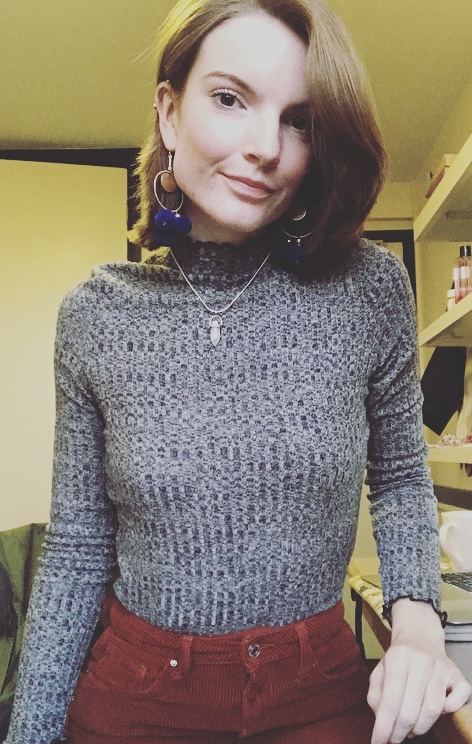Holistic Healthcare with Robin Berzin
Say goodbye to 15-minute doctor’s visits and piles of prescriptions.
The global pandemic has exposed critical flaws in the US healthcare system, leaving millions of people feeling helpless. Between insurance and pharmaceutical companies, medical care in the US often involves putting patients on medication after medication. In turn, healthcare focus shifts away from the patient and their well-being toward prescription drug use and corporate profit. What is healthcare supposed to look like?
Introducing: Parsley Health.
As a functional medicine expert and Columbia-trained physician, Robin Berzin founded Parsley Health in 2016 to provide holistic healthcare with thorough, personalized wellness regimens. Instead of creating medication dependency, Robin finds that healthcare is most effective in nutrition, wellness and prevention. Further, she helps patients develop the most optimal health regimen through holistic analysis and research. Before prescribing a separate medication for depression and IBS, for example, Robin would first ask a very important question. Are these two ailments connected? Often times, the answer is yes. Similar to what we learned with Valérie Espinasse, inflammation and gut health deeply influences mental health.
Say goodbye to 15-minute doctor’s visits and piles of prescriptions. Sit down with Robin Berzin for a little taste of what a visit at Parsley Health might look like — complete with good bacteria food recommendations and tips for regulating your sleep schedule.

How do you bring mental and physical well-being together at Parsley Health?
At Parsley, we do not separate the mental and the physical, because we feel this is an artificial separation. We know that better physical health can boost your mental health. Conversely, poor mental health can feed into poor overall health outcomes. Working on both, together, is critical.
Treating issues in other parts of the body—such as the gut—can have a direct impact on what happens in the brain.
In medicine, we commonly separate the mind and the body, acting as if a literal barrier exists between the two. The reality is there is no wall between your head and the rest of your body—there’s bidirectional communication happening between them constantly. Treating issues in other parts of the body—such as the gut—can have a direct impact on what happens in the brain. For example, we know that gut bacteria make neurotransmitters that can cause brain fog. We also know that high sugar diets can lead to brain inflammation.
At Parsley Health, we bring both mental and physical well-being to the prescription pad. We pair advanced testing, targeted supplements, personalized nutrition, and medications with strategies for optimal sleep, physical activity, and stress reduction–including meditation and mindfulness based practices.We build comprehensive health plans tailored to individual medical history and lifestyle. This way, we can get to the root cause of symptoms. Both those that present in the mind, as well as in the body.

What are the most important rules of thumb to remember when it comes to nurturing our mental health with nutrition?
The most important thing to remember when it comes to mental health and nutrition is that there’s a direct connection between your brain and your gut.
In fact, it’s estimated that 90% of the body’s serotonin is produced in the gut. Serotonin is your key brain neurotransmitter that is involved in stabilizing your mood and improving feelings of happiness and well-being. The production of serotonin is influenced by the mix of your gut bacteria and the foods you eat.
Cut back on foods that disrupt your gut microbiome.
The best rule of thumb is to opt for a diet that is mainly whole foods based. It should include a wide variety of colorful, organic vegetables, fruits, well-sourced animal proteins, legumes, nuts, and seeds. Cut back on foods that disrupt your gut microbiome. These are refined carbohydrates from high-sugar sweets and breads, alcohol, dairy, gluten and processed/packaged foods. They can feed certain “bad” bacterial strains in your gut and can actually lead to higher levels of anxiety, stress, and irritability.
You can also boost “good” bacteria by focusing on prebiotic and probiotic-rich foods. For example, kimchi, sauerkraut, kombucha, and tempeh can all boost good bacteria. You’ll want to also consume a variety of fiber-rich, plant-based foods.
Beyond diet and the microbiome, many people will also notice that they’re low in some essential nutrients. We often recommend monitoring for levels of vitamin B12, folate, iron, magnesium and vitamin D3.

As sleep is so important to our mental health, what are some healthy habits to incorporate that can help us get a good night’s rest?
The amount of sleep you need depends on various factors—especially your age. For most adults, I recommend opting for a nightly goal of 7 to 9 hours.
However, studies show it’s not just duration but also consistency of our sleep schedule that can impact our health. It’s best to go to bed and wake up at the same time everyday. This will allow your body to better regulate its sleep-wake cycle.
If we think about our body’s natural circadian rhythm (our internal biological clock that is attune to fluctuations in sunlight and operates on a 24-hour cycle), an optimal sleep schedule would be from about 9 PM to 5 or 6 AM daily because it is closer in line with the general rising/setting of the sun. Many people experience a second cortisol surge after 11 p.m. – creating a “wired and tired” effect. That being said, try to avoid pushing bedtime past this point.

To naturally support deeper, higher quality sleep you can try some of the following:
- Take magnesium glycinate or magnesium threonate, the best absorbed forms, prior to bedtime. I recommend 200-400 mg. Magnesium is an essential mineral that up to 70% of the population is deficient in. It has many important uses including relaxing smooth muscle and supporting brain and nervous system function.
- Consider quitting caffeine. At a minimum, ensure you have no caffeine after 12 p.m. daily to prevent interference with your natural cortisol curve.
- Avoid blue light two to three hours before bed (including your phone, TV, computer, tablets). Blue light can decrease melatonin production, causing sleep disruptions. If you must use screens at night, consider wearing blue-blocking glasses or installing an app that filters those blue/green wavelengths.
Does gender play a role in mental health perceptions? Do you find that women come to you more often with mental health questions?
Gender plays a large role in mental health perceptions. Part of this is cultural. Women are more likely to speak up about their emotional lives. Men, on the other hand, manifest depression as: “I don’t want to talk about it,” to quote the psychologist Terry Real.
When someone comes to me reporting their struggles with mental health, the first thing I wonder is whether there is something deeper going on in the body.
But part of it is also missed diagnosis. Many health concerns commonly found in women, such as undiagnosed thyroid conditions or variants in the MTHFR gene, can manifest as depression or anxiety. When someone comes to me reporting their struggles with mental health, the first thing I wonder is whether there is something deeper going on in the body. That’s not always the case, but it can be and it often gets missed which is unfair to women.

This is one of the reasons we’ve done away with the rapid fire 15 minute doctor’s visits that have pervaded American medical care over the past decade. It’s just not enough time to get to the root of what’s going on.
At Parsley Health, we do a full intake questionnaire that looks at mental and physical health symptoms side by side. Additionally, we evaluate medical history. This way, when we meet with members, we’re able to thoroughly explore current health concerns, lifestyle and diet. We firmly believe your health shouldn’t be a mystery to you, which means asking not just “if” someone is experiencing depression, but also getting to the root of “why”.
With two kids and your own practice amongst everything else, you have a lot on your plate! How do you manage your mental load?
Yes, it’s a lot! I just had my second baby in February right before COVID hit. As a working parent, the pressure and stress of this time is next level. Lack of child care, working from home, or being an essential worker and having to take the risk of leaving home have all created next level stress. One thing that helps me is to meditate at night. It’s tempting to zone out on my phone or watch TV, but those things never make me feel better. I use an app called the Breathing App by Eddie Stern, which is easier to follow than doing it on my own. It’s so important for my own stress management.
The body is designed to process emotion through motion.
The thing I also know helps (which, as a mom, to be honest I don’t do enough of) is movement. But when I do get to it, it’s game-changing. It could just be a long walk or a group fitness class over Zoom. If I’m extra lucky, I get an online yoga class in. These things are simple, low cost or free and critical. The body is designed to process emotion through motion. But we live a very sedentary life these days and that means we are depriving ourselves of one of nature’s built-in mental health supports. The power of exercise isn’t trivial. The research shows exercise is as effective as some anti-depressants.
How can people access Parsley Health these days?

Parsley is available via telemedicine nationally. This means you can find our doctors in nearly every US state and in D.C.! It’s incredibly exciting that our approach to care is accessible to people who need it from coast to coast. In some instances, these are areas where this type of holistic medicine didn’t previously exist. We’re offering a free 3-week trial so people can come and see what Parsley’s all about before choosing the right membership for them.
In addition to our annual memberships, we also recently launched a 4-month option called The Program. We designed it just for this moment: to help people tackle their most pressing health concern, whether it’s immunity, chronic stress, burnout or hormone imbalances. We want to be here as a partner in building physical and emotional resilience leading into the fall. That being said, we know that means getting to the root of anything that you may have neglected during the pandemic. The Program includes 4-months of care; 2 doctors visits (in person or online); 3 health coach visits (online); and all of the other great things that Parsley offers with our annual membership. Enjoy personalized health plans, unlimited messaging with your health team and advanced testing.
Photography by Reid Rolls

Teresa Deely is a graduate from Columbia University with majors in English and Creative Writing. She is a freelance writer and marketing assistant working for clients in the wellness, jewelry, creative, and sports industries. She believes that one’s skin is yet another canvas and vehicle for art, and has loved styling her hair and applying makeup from a young age. Spending much of her time in educating youth and leading enrichment programs for children, she is highly motivated in discovering new ways to care for herself and sharing them with others.







